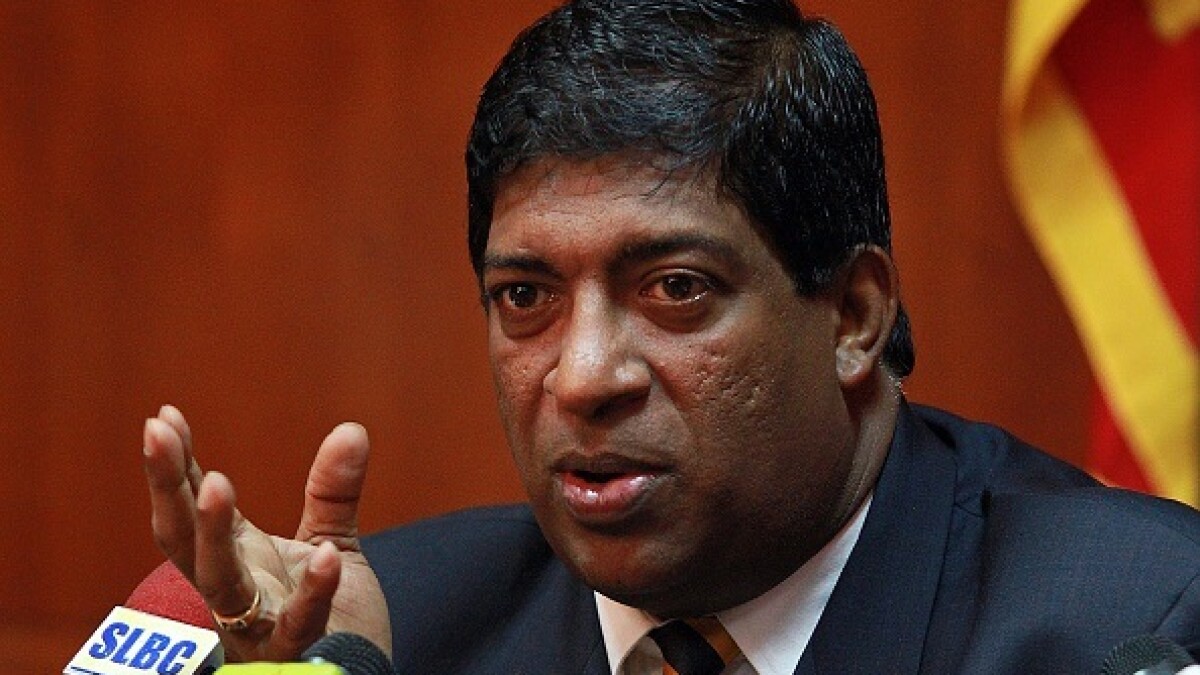By Financial correspondent

(Lanka-e-News -18.Feb.2025, 11.25 PM) In what is now widely regarded as one of the most reckless financial policies in Sri Lankan history, former Finance Minister Ravi Karunanayake's introduction of the ‘no-questions-asked’ policy on foreign remittances laid the groundwork for the country’s economic downfall. With little regard for financial regulations, anti-money laundering laws, or international best practices, Karunanayake—a man with no background in economics—bulldozed his way through critical fiscal decisions, much to the dismay of Central Bank (CB) officials and banking professionals.
While Karunanayake branded his policy as a measure to attract foreign investment and boost foreign reserves, it instead opened the floodgates for illicit financial transactions, destabilized the banking sector, and led to an economic freefall from which Sri Lanka has yet to recover.
Ravi Karunanayake’s rise in the financial sector was not through scholarly achievements in economic policy or monetary strategy but rather through political maneuvering and wheeling-and-dealing. An ordinary accountant by training, Karunanayake gained prominence not for his expertise but for his connections in high places. His financial acumen largely revolved around property acquisitions, commission counting, and leveraging bank loans for personal gain.
His controversial appointment as Finance Minister raised eyebrows among economists, policymakers, and even his own political allies. What experience did he bring to the job, other than balancing his own books and negotiating commissions?
The infamous- Oxford Educated –Former Port and Shipping Minister, Lalith’s Diary, reveals an exposé on illicit financial dealings, further tainted Karunanayake’s credentials, where Lalith Athulathmudali revealing dubious financial activities and raising serious questions about the legitimacy of Ravi’s Chartered Accountant qualification.
One of Karunanayake’s most disastrous financial decisions was his proposal to extend the period for exporters to deposit foreign earnings to 120 days, with an additional 30-day grace period—effectively diluting stringent financial discipline. But the real catastrophe came with his no-questions-asked policy on large-scale foreign remittances.
This policy sought to remove scrutiny from large deposits into Sri Lankan banks, particularly amounts under $1 million. The Finance Minister urged commercial banks to be more ‘flexible’ with foreign inflows, essentially sidestepping international anti-money laundering and anti-terrorism financing regulations.
However, Sri Lanka’s Central Bank officials strongly opposed this policy, warning that:
It would undermine Sri Lanka’s international credibility.
It could facilitate money laundering and terrorism financing.
Banks would face penalties from global financial watchdogs if they relaxed these standards.
Yet, Karunanayake brushed off these concerns, arguing that such measures were necessary to boost foreign reserves and attract investments. The question remained: Was this really about economic growth, or was it a calculated move to benefit those with hidden financial interests?
In a meeting with commercial banks, Karunanayake directly asked if they could relax controls on foreign remittances below the $1 million threshold. The response was unequivocal:
No bank would risk breaking international anti-laundering and anti-terrorism financing laws unless Sri Lankan laws were changed.
Even if Sri Lanka adjusted its regulations, sending banks from foreign countries would still adhere to global financial rules—rendering Karunanayake’s policy ineffective in attracting ‘clean’ foreign money. Was this an oversight, or was it an intentional loophole for illicit financial transactions?
Confusion rippled through the banking sector. With a lack of clear implementation guidelines and conflicting government directives, financial institutions were left grappling with an ambiguous and potentially catastrophic policy shift.
Karunanayake’s financial policies did not operate in isolation—they contributed directly to the economic disaster that followed. Here’s how:
Loss of Investor Confidence: The lack of stringent financial oversight eroded trust in Sri Lanka’s financial institutions, discouraging legitimate investors from bringing in capital.
Increased Illicit Transactions: The relaxed regulations opened the doors to money laundering, raising red flags with global financial watchdogs.
Capital Flight: Instead of attracting foreign reserves, the flawed policy allowed capital outflows, as corrupt officials and businessmen used these relaxed conditions to move money out of Sri Lanka with ease.
Sanctions & Restrictions: International banking institutions and regulatory bodies began scrutinizing Sri Lanka’s banking system, leading to increased difficulties in global financial transactions.
Debt Burden & Inflation: With dwindling foreign reserves and a collapsing financial structure, Sri Lanka’s dependency on debt skyrocketed, leading to higher inflation, economic stagnation, and ultimately, financial meltdown.
As the country plunged into economic turmoil, Karunanayake attempted to distance himself from the disaster. Rather than taking responsibility, he shifted blame onto external factors, previous administrations, and global economic trends.
Despite overwhelming evidence linking his reckless policies to the economic downfall, Karunanayake managed to escape accountability—a testament to Sri Lanka’s deeply entrenched political corruption.
However, history will remember him as the Finance Minister who prioritized short-term political gains over long-term economic stability. His ‘no-questions-asked’ policy may have temporarily enriched a few—but it left an entire nation to suffer the consequences.
The story of Ravi Karunanayake is a cautionary tale of what happens when incompetence meets political power. His ‘no-questions-asked’ policy, under the guise of economic liberalization, ultimately served as a gateway for corruption, financial instability, and the collapse of investor confidence.
While Sri Lanka continues to rebuild from the ashes of financial mismanagement, the lessons from Karunanayake’s tenure should serve as a stark warning:
A country’s economy cannot be run by bookkeepers and wheeler-dealers—it requires foresight, accountability, and a commitment to financial integrity.
-By Financial correspondent
---------------------------
by (2025-02-18 17:35:48)
Leave a Reply